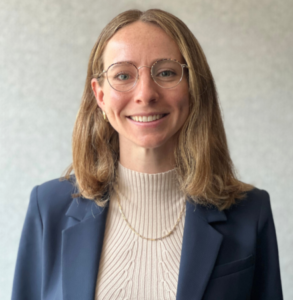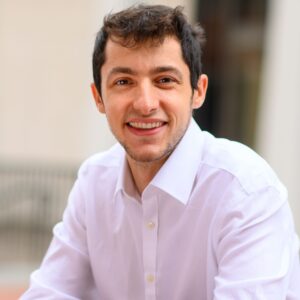High Stakes in High Tech: The US-China AI Power Race
Virtual Briefing Series
Wednesday, September 17th, 2025 | 12:00 PM – 1:00 PM ET
The United States has long been recognized as the global leader in artificial intelligence (AI), a technology transforming trade, foreign policy, and military strategy. China, once seen as years behind, is rapidly closing the gap, most recently with the launch of DeepSeek. With competition heating up in both chip technology and AI innovation, Washington has sought to maintain its edge through export controls and a recently unveiled AI Action Plan. As the world heads into a new technological era, will the U.S. be able to sustain its AI dominance? What advantages might allow Beijing to overtake Washington? And what are the ramifications for the rest of the world, particularly if there’s a split into competing AI systems?
Join us on Wednesday, September 17th, from 12:00 to 1:00 PM ET for a discussion with Janet Egan, Senior Fellow with the Technology and National Security Program at the Center for a New American Security, Owen J. Daniels is the Associate Director of Analysis and an Andrew W. Marshall Fellow at Georgetown’s Center for Security and Emerging Technology (CSET); and Sam Winter-Levy, Fellow in the Technology and International Affairs Program at the Carnegie Endowment for International Peace. This conversation will provide key insights into the strategic, economic, and geopolitical stakes of the U.S.–China AI race.
COULDN’T ATTEND OUR EVENT? Don’t worry. You can watch it below
SPEAKERS:
Janet Egan

Janet Egan is a senior fellow with the Technology and National Security Program at the Center for a New American Security (CNAS). Her research focuses on the national security implications of artificial intelligence (AI) and other emerging technologies, including how compute policy can be used to manage the risks and opportunities of advanced AI systems. Prior to joining CNAS, Egan was a director in the Australian Government Department of the Prime Minister and Cabinet. She has applied experience working on policy at the intersection of national security, economics, and international relations. Her work has spanned issues such as 5G security, cybersecurity, countering foreign interference, foreign investment and trade, and critical infrastructure regulations. She was a member of the prime minister’s task force on critical technologies and the inaugural director of policy in Australia’s Office of Supply Chain Resilience. Egan holds a master’s degree in public policy from the Harvard Kennedy School and a bachelor of arts from Monash University in Australia.
Owen Daniels

Owen Daniels is the Associate Director of Analysis and an Andrew W. Marshall Fellow at Georgetown’s Center for Security and Emerging Technology (CSET), where he works on military and AI governance issues and supports the Analysis Team portfolio. He is also a Non-Resident Senior Fellow in the Scowcroft Center for Strategy and Security at the Atlantic Council. Prior to joining CSET, he worked in the Joint Advanced Warfighting Division at the Institute for Defense Analyses (IDA), where he researched the ethical implications of artificial intelligence and autonomy, autonomous weapons norms, and joint operational concepts, among other issues. He has also worked as an Associate Director in the Atlantic Council’s Scowcroft Center for Strategy and Security and as a defense researcher at Aviation Week Magazine. He was a 2022-2023 Penn Kemble Forum Fellow at the National Endowment for Democracy. Owen attended Princeton University, where he majored in International Relations with minors in Arabic Language and Near Eastern Studies, and he is a Master’s in Public Policy candidate at Georgetown’s McCourt School of Public Policy. He is currently researching a book on AI and military affairs for Polity Press.
Sam Winter-Levy

Sam Winter-Levy is a fellow in the Technology and International Affairs Program at the Carnegie Endowment for International Peace, where his research focuses on emerging technology and national security. Before joining Carnegie, he was a Ph.D. candidate in politics at Princeton University and a Peace Scholar Fellow at the US Institute of Peace, and he has worked as a staff editor at Foreign Affairs and reported for The Economist.
He has published academic research in the Journal of Politics, received Princeton’s George Kateb Preceptor Award for teaching, and written for publications including Foreign Affairs, Foreign Policy, the New Yorker, Lawfare, War on the Rocks, the Washington Post, the Boston Globe, the London Review of Books, and Scientific American, among others. He received his undergraduate degree from the University of Oxford and was the Michael Von Clemm Fellow at Harvard in 2014-15
Image creator: Kohji Asakawa from Pixabay
We are trying our best to keep our community informed about foreign affairs, and we would appreciate if you can support us to keep this virtual briefing series going. No amount is too small.

